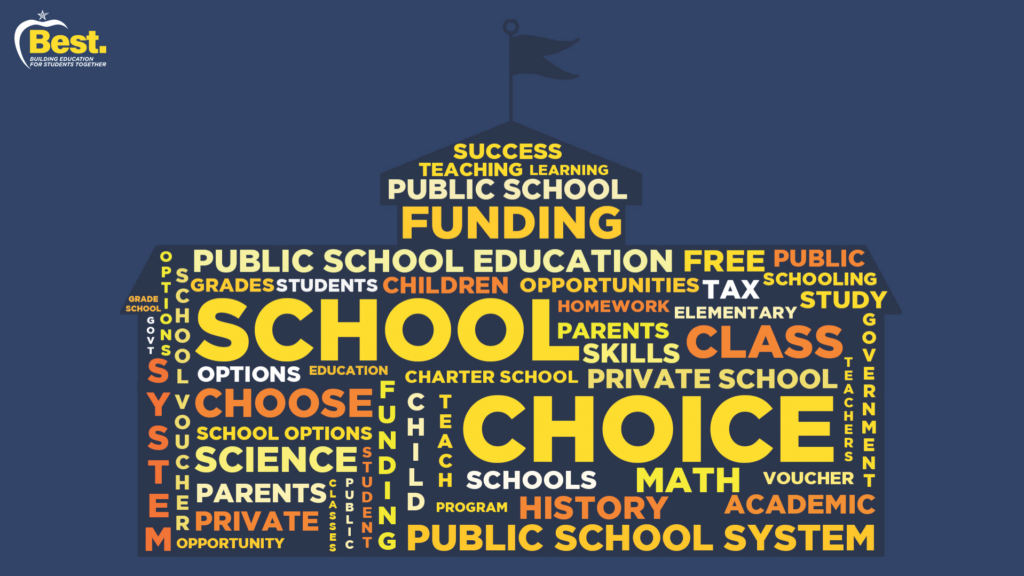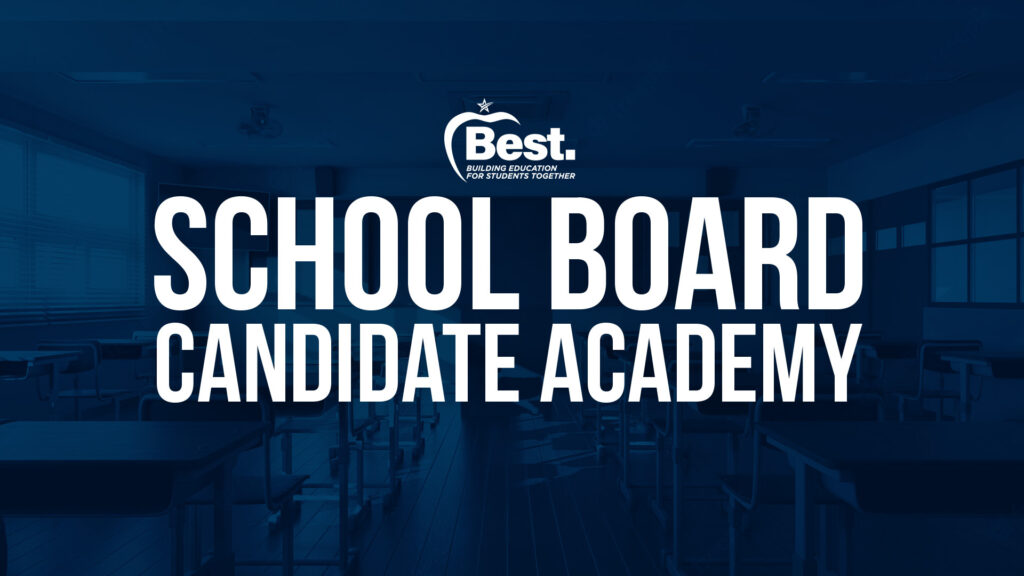Activist Handbook 2000: School Choice
School Choice
Why CSE Cares
The Issue:
CSE believes that choice and competition improve products and services. Parents strive to send their children to safe schools where they will get the educational opportunities they need to compete in a global economy. Giving parents the choice among the widest possible array of schools will provide these schools with the incentive to provide the best education for every student – without school choice, schools get students and funding regardless of how well they perform. This public school monopoly has not served many children well for at least a decade. Currently, there are a growing number of educational alternatives ranging from traditional public schools, private or parochial schools, charter schools, school vouchers, private scholarship programs, and home schooling. In 1999, Florida passed the first statewide school choice program in the nation. This year, the program included to help special needs students as well.
A sound economy in an era of global competition depends upon a well-educated workforce, which school choice will help to create.
The Problem:
Unfortunately, the education bureaucracy and teachers’ unions often try to keep parents from full access to different educational opportunities. These groups, allied with liberal special interest groups, have filed a lawsuit in state court in hopes that judges will abolish the school choice program legislators and Gov. Jeb Bush created last year. This lawsuit is currently pending in the state court of appeals; if the teachers, union loses there, they are sure to sue again in federal court.
Facts:
· According to studies by the Wisconsin Department of Public Instruction and Family Service America, research on the publicly and privately financed choice programs in Wisconsin show positive results. Parents report a high rate of satisfaction and parental involvement increases. This is significant because parental involvement is linked to academic achievement.
· After one year, low-income New York City students using private scholarships to attend private schools scored higher in reading and math than similar students in the public schools.
The Solution:
CSE supports policies that will increase competition, innovation and diversity in the education system. This includes vouchers, limited choice programs, charter schools and tax credits. We hope to expand Florida’s school choice program to all public schools and all parents.
CSE’s School Choice Agenda
Preserving the Program. Florida’s Opportunity Scholarship Program is the first and only statewide school choice program in the country. Creating the program was a great success (in which CSE played a role), but we cannot rest on our laurels. Teachers’ unions and their allies have worked to undercut the program in practice, in the media, in the legislature, and in the courts. CSE and proponents of school choice must actively and frequently promote the opportunities and successes of school choice whenever they are challenged.
Holding Public Schools Accountable for Teaching Every Subject. Under the program’s current rules, a public school must be astoundingly bad for its students to qualify for vouchers. All students in the fourth, eighth and tenth grades take standardized tests to evaluate the quality of their school. Schools need to pass just one of the three FCAT tests (reading, writing and math) to avoid losing students to the voucher program. But if a school is failing to teach the majority of its students to read or write – even if they are learning math – that school should be judged to be failing. Accordingly, the legislature should change the law to require that a majority of tested students in a given school pass all three exams in order for that school to be exempted from the voucher program.
Holding Public Schools Accountable for Providing a Good Education. Of the state’s 3,504 schools, just 11 failed the writing portion of the test this year. Does this indicate a massive improvement in school performance, or are the tests not challenging students? The legislature should review this issue. In addition, New York, Philadelphia, Washington, D.C. and other cities have had incidents where teachers or principals cheated to help students pass standardized tests; we must remain observant for this misbehavior in Florida as well.
Expanding the Program in Florida. Next school year, the only children receiving vouchers will be former students of two under-performing elementary schools from the Pensacola area. But the benefits of school choice – variety, competion, innovation – should be available to all Floridians. Students in all public schools, regardless of their quality, should be able to choose a different one if they prefer.
Creating School Choice Nationwide. Gov. George W. Bush has proposed creating a limited school choice program nationwide. While the federal government should have as little to do with education as possible, we strongly believe school choice should be available to as many of America’s parents as possible.
Frequently Asked Questions
Q: Does school choice violate the First Amendment by aiding religious schools?
A: Several recent court decisions have determined that choice plans are constitutional if aid under the plan serves a secular purpose, is given according to criteria that neither favor nor disfavor religion, and flows to religious institutions as a result of parental or student choice. Those were the Wisconsin Supreme Court’s reasons in 1998 for upholding the constitutionality of the state-funded voucher program in Milwaukee, which permitted low-income students to choose religious schools. By a vote of 8 to 1, the U.S. Supreme Court declined to hear the case, allowing the Wisconsin decision to stand. Applying the same three-pronged test, the Ohio Supreme Court in May 1999 decided that the basic structure of the Cleveland voucher program was constitutional.
Q: Will school choice create segregation?
A: Both Catholic and non-Catholic private schools are more racially diverse than public schools, and have been since at least the early 1980s. Students of different racial backgrounds are even more likely to sit next to each other in private school lunch rooms – especially in religious schools. Moreover, vouchers are popular in minority communities. For example, a survey by the Joint Center for Political and Economic Studies found that 57% of African-Americans, 65% of Hispanics, and 47% of whites favor school choice.
Q: Wouldn’t it be better to simply spend more money on public schools?
A: Simply spending more money does not improve performance. Since the 1970s, spending per student has steadily risen and teacher-pupil ratios have steadily fallen. Yet over that same period, standardized test scores essentially remained unchanged. In fact, schools today spend three times as much as they did 40 years ago!
Q: Would smaller classes be a better solution?
A: Probably not. A popular review of the scientific studies of the subject found that 85% found no effect – or a negative effect – on student learning in smaller classes.
Sample Letter to the Editor
Dear Editor:
Simply put, school choice is about giving parents a voice. More importantly, the choice goes to parents in areas where schools are failing.
These parents – regardless of income or location – are now able to give their children a chance at a quality education. People who can afford to send their children to private school have had this right for a long time. Now, it’s time to make sure all parents have this voice in their children’s education.
Unfortunately, the teachers’ union is suing the state over the school choice program because they are afraid of what will happen to “the system.” How selfish! If a school is failing to educate children, it is wrong to force parents to continue sending their children to those schools. It’s time we put our children ahead of “the system.”
Floridians should demand that teachers’ unions stop this nonsense lawsuit and focus on improving our schools.
Sincerely,
Questions for Policymakers
School choice is working well in Milwaukee, Cleveland and Florida. Do you think we should go ahead and let parents in all parts of the state have a choice of where to send their children to school?
College students can use federal student aid money to go to schools affiliated with a religious body, including seminaries. So why shouldn’t parents be able to use government funding for tuition at parochial grade schools or high schools?
Many people choose to live in the suburbs instead of cities so their children can get a good education. In a sense, they are choosing their children’s schools. Shouldn’t all parents be able to have school choice, regardless of where they live or how much money they make?
There is a lot of argument and controversy in education today: about discipline in schools, how and if schools should teach evolution or sex-ed, and whether some books shouldn’t be in school libraries. Wouldn’t school choice solve these problems by allowing more variety in education? More broadly, shouldn’t all parents be able to choose the school that best suits their own children?
Schools spend more than three times as much money per student as they did in the 1960s, yet schools are still failing to adequately educate our children. Do you think more money is the answer? Or is it time to apply principles that have worked well for the rest of our economy – competition and choice – to our education system, and give parents school choice?
Talking Points
Children get a better education through school choice. School choice works where it’s being tried:
· After four years in a state-funded voucher program in Milwaukee, low-income students performed 11 percentile points better in math and 6 points better in reading than similar students who did not receive vouchers. If the program produced such gains for all students over 12 years of schooling, it would eliminate more than half of the gap in reading performance and all of the gap in math performance between white and minority students.
· After one year, Cleveland students receiving state-funded vouchers scored higher in language, math, reading, and social studies than similar public school students. At two new schools created to serve voucher students, students scored 5.7 percentile points higher in reading and 8.6 percentile points higher in math after one year. In contrast, percentile scores of inner-city public school students often fall by a point or two a year.
School choice improves regular public schools by encouraging innovation and competition:
· When parents began applying for vouchers in Cleveland, the public school system offered applicants a chance to place their children in magnet schools and enrichment programs.
· In Milwaukee, the public school system seeks to retain students by advertising that they will pay for a reading tutor for any child who does not learn to read in regular classes.
Florida’s school choice program is working.
Last year, 78 Florida schools received an F under the state’s ranking system, and the same grade for the 1999-2000 school year would have made their students eligible for opportunity scholarships (vouchers). But at every one of those schools, student scores on standardized reading tests improved enough so that each school earned a D. While this is not a miraculous improvement, the prevalence of success demonstrates that giving schools the incentive to try something different can work.
Parents who can afford to move to an area with quality public schools, or enroll their child in private school, have already exercised school choice.
Parents without such means are forced to send their child to a school assigned by the government – regardless of what the parents think of that school. Consider America’s system of universities, where choice has created high-quality education of many different kinds for anyone interested in obtaining it.




